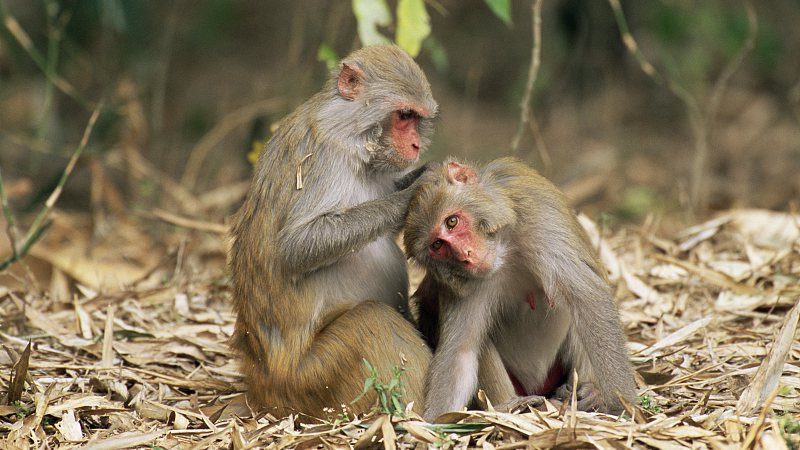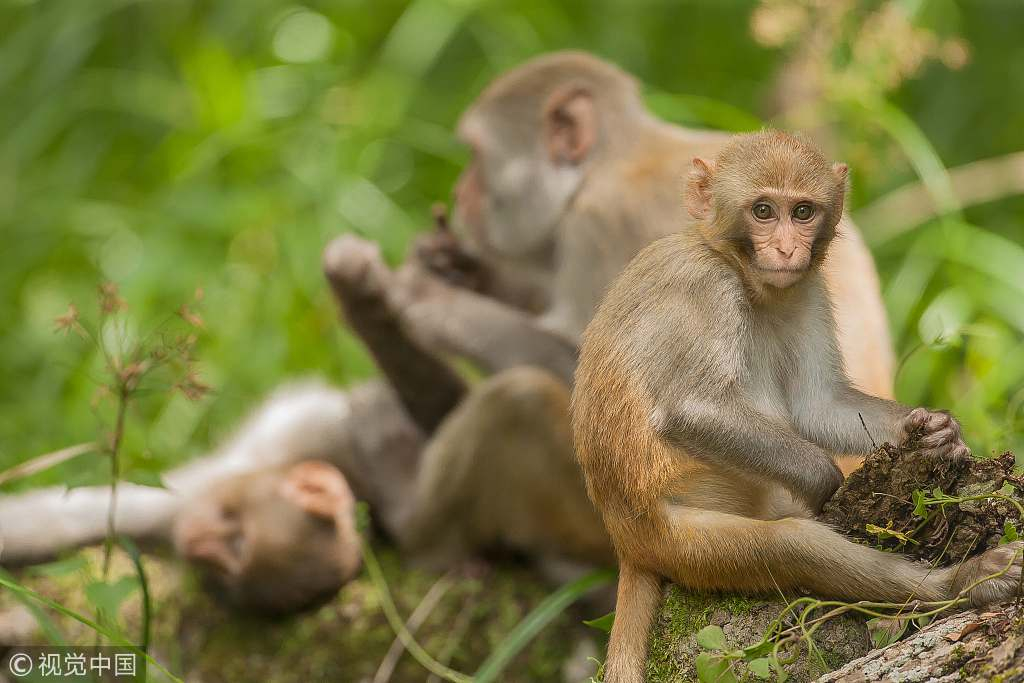
Science
12:16, 03-Apr-2019
Transgenic monkeys carrying human gene show human-like brain development
CGTN

Researchers from China and the United States created transgenic monkeys carrying a human gene that is important for brain development, and later observed human-like brain development in the monkeys.
Scientists have identified several genes that are linked to primate brain size. MCPH1 is a gene that is seen during fetal brain development. Mutations in MCPH1 can lead to microcephaly, a developmental disorder characterized by a small brain.
In the study published in the Beijing-based National Science Review, researchers from the Kunming Institute of Zoology, Chinese Academy of Sciences (CAS), the University of North Carolina in the United States and other research institutions reported that they successfully created 11 transgenic rhesus monkeys (eight first-generation and three second-generation) carrying human copies of MCPH1.
According to the research article, brain imaging and tissue section analysis showed an altered pattern of neuron differentiation and a delayed maturation of the neural system, which is similar to the developmental delay (neoteny) in humans.

Wild rhesus monkeys /VCG Photo
Wild rhesus monkeys /VCG Photo
Neoteny in humans is the retention of juvenile features into adulthood. One key difference between humans and nonhuman primates is that humans require a much longer time to shape their neuro-networks during development, greatly elongating childhood, which is the so-called "neoteny."
The study also found that the transgenic monkeys exhibited better short-term memory and shorter reaction time compared to wild rhesus monkeys in the control group.
The researchers said that a transgenic monkey model is practical and to a large extent can mimic the human-specific status.
In future studies, transgenic nonhuman primates have the potential to provide important insights into basic questions of what makes humans unique, as well as into neurodegenerative and social behavior disorders that are difficult to study by other means, they said.
Strict animal experiments
Concerns may be raised when talking about experiment animals, while it has been worldwide recognized that the welfare of lab animals should be safeguarded.
Strict regulations and rules have been stipulated to regulate animal experiments.
A nonprofit organization, Association for Assessment and Accreditation of Laboratory Animal Care International (AAALAC), has been committed to promoting "the humane treatment of animals in science through voluntary accreditation and assessment programs."
Over 1,000 government agencies, enterprises and institutions from 47 countries have been certified by the association, with more than 80 from China, showing their commitment to "responsible animal care and use and good science."
Both the Chinese and U.S. institutes involved in the transgenic monkey research have got AAALAC accreditation.
At the same time, scientists are also seeking alternative methods for lab animals, according to Shanghai Institute of Materia Media, CAS, also with AAALAC accreditation, practicing the basic principles of "3R" – replace, reduce and refine.
(Cover: Rhesus macaques /VCG Photo)
(With input from Xinhua News Agency)

SITEMAP
Copyright © 2018 CGTN. Beijing ICP prepared NO.16065310-3
Copyright © 2018 CGTN. Beijing ICP prepared NO.16065310-3